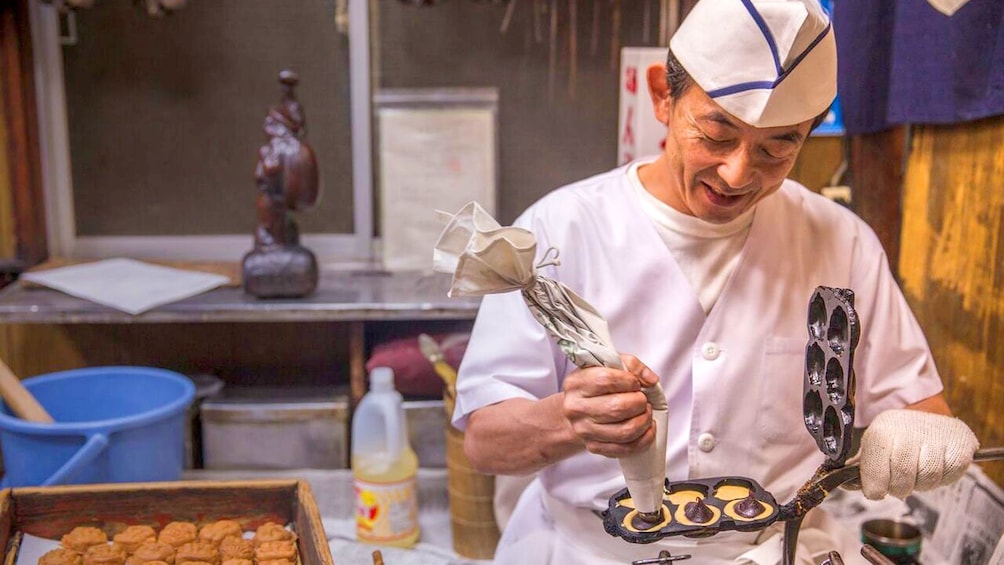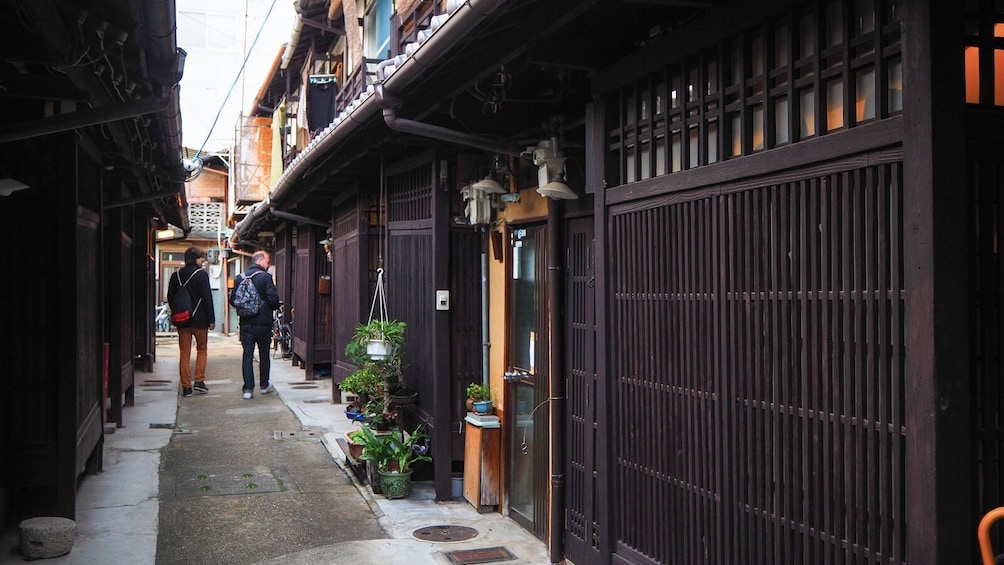Spend your day with us browsing for traditional souvenirs and goods – made right here in Japan! Gain some insight into the foods and snacks that Japanese people eat and the typical items they use in everyday life. We’ll start the tour in the neighbourhood of Ningyocho, a district known for its old traditions and, as you’ll soon discover, some very tasty treats.
We’ll visit several shops that have been around for over 100 years, many of which are still family-owned. To kick things off, we’ll try some Ningyoyaki cakes, a true Tokyo speciality. This is a small sponge cake with sweet red bean filling and made in different shapes. We’ll also visit a shop that specialises in a traditional snack: senbei (rice crackers), a favourite in many Japanese households. There are many other shops selling Japanese sweets, snacks, or drinks around this street.
We especially recommend the Wagyu beef sukiyaki croquettes made by the famous sukiyaki restaurant Imahan. On a small street lined with izakaya (Japanese-style pubs) where neighbours stop by, there is a Japanese-style hotel, an old-fashioned ryokan.
Your Tokyo tour will next lead you to one of the eight shrines where virtue, longevity, learning, and wealth are worshipped. Once we’ve exhausted Ningyocho, we’ll visit another neighbourhood nearby, Nihonbashi. The district of Nihonbashi was a hub for merchants during the Edo period. Today, it is predominantly a financial district that houses trading firms and even the Tokyo Stock Exchange. And although Nihonbashi is very much a modern neighbourhood, it features many traditional Japanese shops hidden in its alleyways and even within its department stores. We’ll visit a Japanese traditional Washi paper store that was established in 1653 (the Edo Period).
You’ll get to browse through their museum to watch archives that contain thousands of ancient documents from 360 years of history and Japanese traditional paper. You can purchase high-grade handmade paper products and fine products used by discerning artists from all over the world.
We’ll also discover a toothpick shop that has been in business since 1704, where you will be able to check out delicate handmade toothpicks, plus other handmade items carved from Kuromoji or Lindera umbellata trees. Also, we may visit the kitchen knife shop, brush shop, gold flake shop or Dashi (soup st



